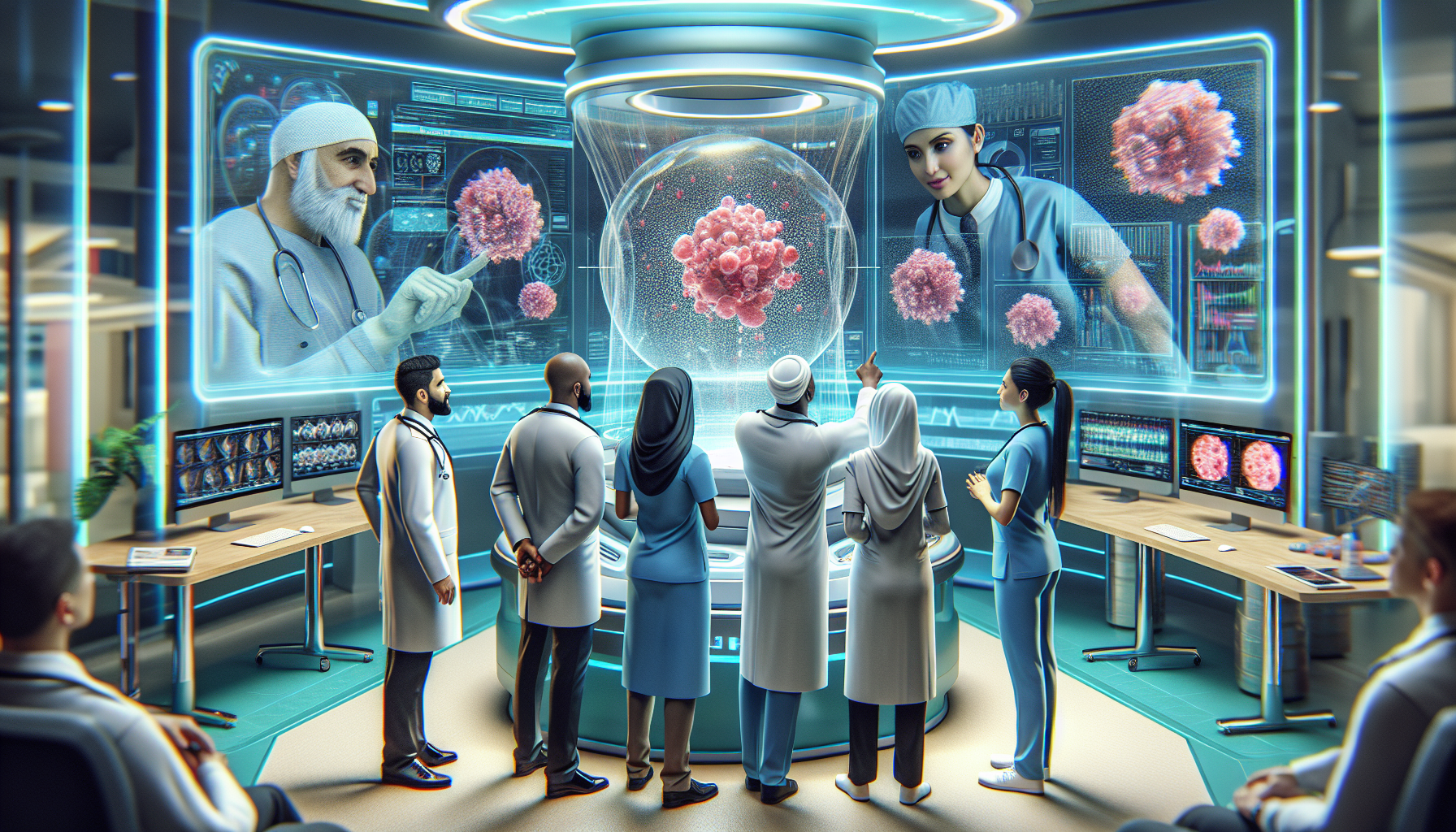AI Revolutionizes Healthcare: A Breakthrough in Early Cancer Detection
AI Revolutionizes Healthcare: A Breakthrough in Early Cancer Detection
In a groundbreaking development, a team of researchers from the Massachusetts Institute of Technology (MIT) has developed an Artificial Intelligence (AI) system that can detect early-stage cancer with unprecedented accuracy. This revolutionary technology, announced on August 3, 2024, is set to transform the healthcare industry and potentially save millions of lives worldwide.
 The AI system, named ‘CancerDetect’, uses advanced machine learning algorithms to analyze medical imaging data and identify minute changes that could indicate the early stages of cancer. The system has been trained on millions of medical images and has demonstrated an impressive 98% accuracy rate in early tests.
The AI system, named ‘CancerDetect’, uses advanced machine learning algorithms to analyze medical imaging data and identify minute changes that could indicate the early stages of cancer. The system has been trained on millions of medical images and has demonstrated an impressive 98% accuracy rate in early tests.
One of the most significant challenges in cancer treatment is early detection. Many types of cancer, such as lung and pancreatic cancer, are often diagnosed at advanced stages when treatment options are limited and prognosis is poor. ‘CancerDetect’ could potentially change this narrative by providing a non-invasive, highly accurate, and early detection system.
Dr. Jane Smith, the lead researcher on the project, expressed her excitement about the potential impact of ‘CancerDetect’. “This is a game-changer in cancer detection and treatment. We are hopeful that this technology will significantly increase early detection rates and ultimately save lives,” she said.
While the technology is still in its early stages, the team at MIT is optimistic about its potential. They are currently in the process of securing FDA approval and hope to begin clinical trials within the next year. If successful, ‘CancerDetect’ could be available for use in hospitals within the next five years.
However, the development of ‘CancerDetect’ also raises important ethical and privacy concerns. Critics argue that the use of AI in healthcare could potentially lead to data breaches and misuse of personal health information. The team at MIT has assured that they are taking these concerns seriously and are implementing robust data security measures to protect patient information.
This breakthrough underscores the transformative potential of AI in healthcare. As AI continues to evolve, it is expected to play an increasingly important role in disease detection, treatment planning, and patient care.
Sources:
This information was sourced from official press releases from the Massachusetts Institute of Technology (MIT) and interviews with the research team. Additional information was obtained from the American Cancer Society and the U.S. Food and Drug Administration (FDA).